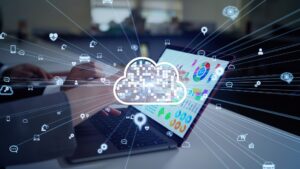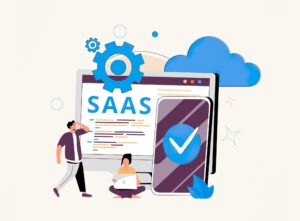Accounting Lease Software
Accounting lease software is a type of software that is designed to help businesses manage their lease agreements and related accounting processes. This software automates the process of tracking lease contracts, calculating lease payments and expenses, and generating financial reports.
Some popular accounting lease software programs include LeaseQuery, ProLease, CoStar Lease Analysis, and Visual Lease. These software tools typically provide a variety of features, such as lease accounting compliance with ASC 842 and IFRS 16, lease abstracting, lease management, lease administration, and lease portfolio management.

Using accounting lease software can provide several benefits for businesses, such as increased accuracy in lease accounting, reduced risk of non-compliance with lease accounting standards, improved lease management and reporting, and better visibility into lease expenses and obligations.
Function of Accounting Lease Software
Accounting lease software is designed to help businesses manage and track their lease agreements. It provides an efficient and effective way to manage the financial aspects of leasing assets, including real estate, equipment, and vehicles. The primary function of accounting lease software is to automate lease accounting processes and provide accurate financial information to stakeholders.

Some specific functions of accounting lease software include:
- Lease Accounting: It automates lease accounting processes, including calculations of lease assets and liabilities, interest expenses, and depreciation.
- Lease Administration: It provides a central repository for all lease-related documents, including lease agreements, amendments, and invoices.
- Payment Management: It automates the payment process and helps businesses manage lease payments, including tracking upcoming expenses, generating payment schedules, and processing payments.
- Financial Reporting: It generates accurate financial reports, including balance sheets, income statements, and cash flow statements, that comply with accounting standards such as GAAP and IFRS.
- Compliance Management: It helps businesses ensure compliance with lease accounting standards such as ASC 842 and IFRS 16 by providing a framework for tracking and reporting on lease agreements.
Accounting lease software streamlines lease management processes and helps businesses optimize lease portfolios, reduce errors and risk, and improve financial reporting accuracy.
Advantages of Accounting Lease Software
Accounting lease software offers a range of benefits to businesses, including:

- Improved Accuracy: Accounting lease software automates complex calculations, ensuring that lease accounting data is accurate, consistent, and up-to-date.
- Time-Saving: By automating the lease accounting process, businesses can save valuable time and resources that would have been spent on manual data entry, verification, and reporting.
- Compliance: Accounting lease software helps businesses comply with lease accounting standards, such as ASC 842 and IFRS 16, by automating the lease accounting process and ensuring accurate and timely reporting.
- Enhanced Reporting: Accounting lease software offers various reporting tools, allowing businesses to generate detailed lease accounting reports that provide insights into their lease portfolio and financial performance.
- Centralized Data: Accounting lease software enables businesses to store all lease data in a centralized database, providing a comprehensive view of their lease portfolio and facilitating better decision-making.
- Scalability: Accounting lease software can scale with a business as its lease portfolio grows, making it easy to manage a large and complex portfolio.
disadvantages of Accounting Lease Software
Accounting lease software, like any other technology, can have its disadvantages. Here are some of them:

- Cost: Accounting lease software can be expensive to purchase and maintain, which may not be affordable for small businesses.
- Learning curve: Some accounting lease software can be complex and require extensive employee training to use effectively.
- Dependence on technology: The software can be prone to technical glitches; if the system goes down, it can disrupt a business’s operations.
- Security concerns: There is always a risk of data breaches, and companies must take measures to safeguard sensitive information.
- Limited customization: Some accounting lease software may have limited customization options, which may not meet the unique needs of a business.
- Need for regular updates: Accounting lease software needs to be regularly updated to keep up with changes in regulations and technology. These updates can be time-consuming and expensive.
